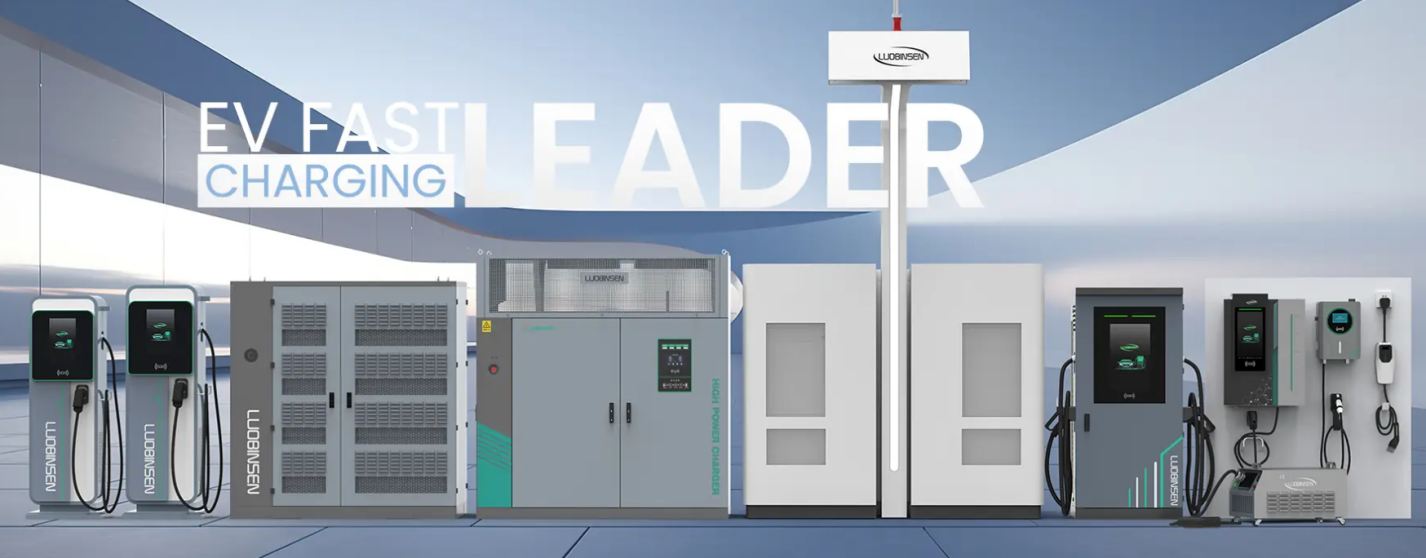With electric vehicles gaining popularity, the demand for efficient and rapid charging solutions is also escalating in public spaces.
This is mainly due to two reasons. Firstly, EV users hope to charge in the shortest time so that they can start their journey as soon as possible. Secondly, the increasing number of electric vehicles increases the pressure on public charging facilities, requiring faster charging to improve efficiency and meet the needs of more users.
DC EV chargers are famous for their rapid charging capabilities compared to AC chargers. While both AC and DC chargers are used in the EV ecosystem, DC chargers offer distinct advantages for those in need of a quick power boost. It only takes a few tens of minutes to fully charge the battery of electric vehicles, greatly saving users time.
Why are DC EV Chargers Faster Than AC Ones?
DV EV charges offer fast charging facility for the following reasons:
1. High Current and Voltage Levels
DC EV chargers operate with high current and voltage, which is a key factor in their swift charging capabilities. The working voltage of the AC EV charger is 240 volts, while the DC EV charger has a specialized high-voltage DC power source.
This means that more electricity is transmitted to the battery at the same time, significantly reducing the charging time. Therefore, they are often installed in commercial sites.
2. High Output Power
Due to the high current and high voltage features of DC EV chargers, their output power is usually much higher than that of AC EV chargers. The output power of AC chargers is generally 22kW, while DC chargers’ power can reach 240kW.
High output power means that energy can be transferred to the battery faster. Enable electric vehicles to replenish more range in the same amount of time.
3. Power Supply Method
DC chargers are engineered with a three-phase, four-wire power supply system. This power supply method can provide more stable current and voltage that support high-power charging.
On the other hand, AC EV charging infrastructure relies on a single-phase power supply, which is a simpler but slower approach.
4. Direct Battery Charging
A DC EV charger can directly charge EV batteries without an onboard inverter, which is a device that converts AC into DC, allowing electric vehicles to use alternating current from household sockets.
However, energy loss may occur during this conversion process. The DC EV charger directly provides DC power, avoiding this process and improving energy conversion efficiency, thus accelerating charging speed.
5. Low Heat Generation
DC charging systems are designed to minimize heat generation, enhancing their efficiency and reliability. Lower heat generation means less energy loss and maintains the charging system and battery temperature within a safe range.
Where are DC Charging Stations Needed?
With more EV cars coming onto the roads daily, there is a pressing need for more DC charging stations.
Here are some common places where these DC EV charging stations are most needed.
1. Commercial Parking Lots
Commercial parking lots, such as office buildings, supermarkets, and shopping centers, are ideal for installing DC EV charging stations. There is a high flow of cars, and car owners may need to quickly charge their vehicles during shopping or work.
DC charging stations enable them to charge and continue their journey quickly. Setting up fast charging services can also attract customers.
2. Fleet Operations
Businesses that operate EV fleets, such as delivery services or car rental companies, require efficient charging solutions to maintain operational efficiency. DC charging stations will meet this need by providing rapid charging capabilities.
3. Highways
The lack of EV charging stations on highways is one of the primary reasons why many people still hesitate to buy an EV. Due to the limited range of EVs, DC charging stations along the way ensure that EV owners can charge and continue their journey in a shorter period, reducing delays caused by charging.
4. Public Charging Stations
Public spaces, including parks, libraries, and community centers, are also prime locations for DC charging stations. Offering rapid charging in these areas will enhance the convenience and accessibility of EVs for the general public.
In addition, public DC charging stations can also serve as important ways to promote EVs and encourage more people to adopt environmentally friendly ways of transportation.
Buy High-quality DC EV Chargers
The need for advanced, reliable, and versatile DC EV chargers has never been more critical. Luobinsen brings commercial EV chargers that make the lives of EV owners easier.
Luobinsen’s group charger series offers an impressive output voltage range from 200V up to 1000V. This remarkable range meets various EV scales in commercial and public places. With a power range stretching from 240kW to an astounding 600kW, these chargers are known for charging EVs super-fast.
Luobinsen’s Charger series is designed for a variety of applications, such as parking lots, fleet operations, highways, and public charging stations. The best part is that the chargers are available with normal and liquid-cooling dispensers to suit different conditions.
DC EV chargers in this series are designed to ensure over 95% efficiency at full load, maximizing energy use and saving electricity bills. Furthermore, this group charger boasts full safety protection, including leakage, insulation, short circuit, over/under voltage, over current, and surge protection. Thus, customers can rest assured when using this charger.

Wrapping-Up
As EVs evolve, the need for robust and efficient charging solutions is undeniable. DC EV chargers are more recommended in various public places than AC chargers.
Luobinsen is a professional EV charger supplier in the field of 600kW high-power DC EV chargers. Our DC charging stations are designed for various commercial and public scenarios, bringing maximum convenience to your customers or fleet. Contact us to explore various products for your business!






